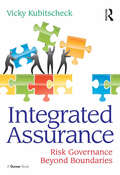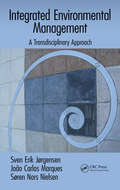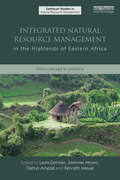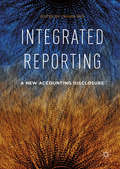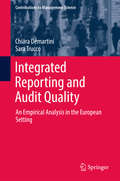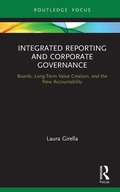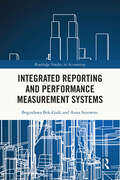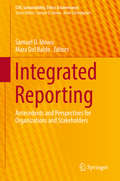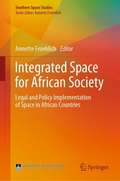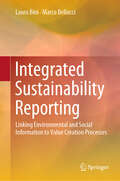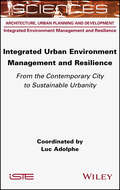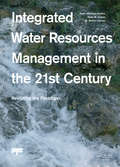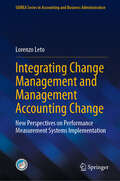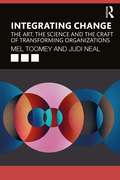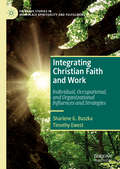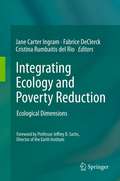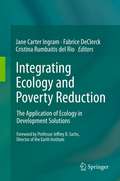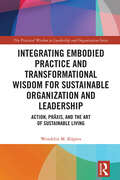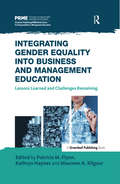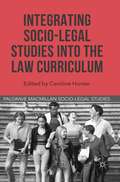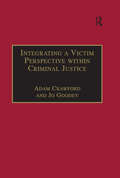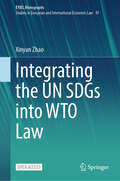- Table View
- List View
Integrated Assurance: Risk Governance Beyond Boundaries
by Vicky KubitscheckThe need for assurance is never more acute than in times of turbulence and uncertainty. The events following the financial market crisis demonstrate the catastrophic consequence of risk taking that exceeds the board’s appetite, and of not joining up risk intelligence for sound decision making. Boards and senior management alike consistently seek the ’one truth’ about risk exposures and strength of controls but are continuing to grapple with the challenge. Much has been written about assurance and the governance of risks, but mainly by those who provide it - such as internal auditors, accountants and information security technologists - for the purpose of advancing their professional practices. Less is written for or by those in governance who need assurance for the effective discharge of their responsibilities. Regulations do not usually go beyond acknowledging its importance and rely on those in the boardroom to get it right. Studies have consistently shown the link between weak corporate governance and corporate failures. The lack of reliable assurance has often been a factor. Assurance, as an integral part of corporate governance, cannot be taken for granted. It requires conscious action across the organisation. It is time to rethink assurance beyond its usual functional boundaries, to focus on what matters to the business and how discussions in the board room can be better supported by more joined up assurance. This book provides practical guidance for those who need that support as well as those who deliver assurance.
Integrated Environmental Management: A Transdisciplinary Approach (Applied Ecology and Environmental Management)
by Søren Nors Nielsen Sven Erik Jörgensen Joao Carlos MarquesBased on 40 years of experience, Integrated Environmental Management: A Transdisciplinary Approach brings together many ecological and technological tool boxes and applies them in a transdisciplinary method. The book demonstrates how to combine continuous improvement management tools and principles with proven environmental assessment methodologies
Integrated Natural Resource Management in the Highlands of Eastern Africa: From Concept to Practice (Earthscan Studies in Natural Resource Management)
by Laura German Tilahun Amede Jeremias Mowo Kenneth MasukiThis book documents a decade of research, methodological innovation, and lessons learned in an eco-regional research-for-development program operating in the eastern African highlands, the African Highlands Initiative (AHI). It does this through reflections of the protagonists themselves—AHI site teams and partners applying action research to development innovation as a means to enhance the impact of their research. The book summarizes the experiences of farmers, research and development workers and policy and decision-makers who have interacted within an innovation system with the common goal of implementing an integrated approach to natural resource management (NRM) in the humid highlands. This book demonstrates the crucial importance of "approach" in shaping the outcomes of research and development, and distils lessons learned on what works, where and why. It is enriched with examples and case studies from five benchmark sites in Ethiopia, Uganda, Kenya and Tanzania, whose variability provides the reader with an in-depth knowledge of the complexities of integrated NRM in agro-ecosystems that play an important role in the rural economy of the region. It is shown that the struggle to achieve sustainable agricultural development in challenging environments is a complex one, and can only be effectively achieved through combined efforts and commitment of individuals and institutions with complementary roles.
Integrated Reporting
by Chiara MioThis book is a timely addition to the fast-growing international debate on Integrated Reporting, which offers a holistic view of the evolution and practice of Integrated Reporting. The book covers the determinants and consequences of Integrated Reporting, as well as examining some of the most relevant issues (particularly in the context of the United States) in the debate about Integrated Reporting.
Integrated Reporting and Audit Quality
by Sara Trucco Chiara DemartiniThis book analyzes the relationship between integrated reporting and audit quality within the European context, presenting empirical evidence and drawing on a broad review of the available literature in order to evaluate the ability of integrated reporting to enhance audit risk assessment. Dedicated sections first elucidate the concepts of integrated reporting and audit quality. The main integrated reporting frameworks are compared, the role of integrated reporting within a firm's disclosure is examined, and all aspects of audit risk are discussed. The key question of the impacts of integrated reporting on the components of audit risk is then addressed in detail, with reference to empirical findings, their practical implications, and their limitations. The concluding section explores the future of corporate reporting and the development of the next integrated reporting framework and summarizes the insights that the analysis in the book offers into the relationship between integrated reporting and audit quality in the European setting.
Integrated Reporting and Corporate Governance: Boards, Long-Term Value Creation, and the New Accountability (Routledge Focus on Accounting and Auditing)
by Laura GirellaCorporate governance and corporate reporting are closely linked to each other, and their respective evolutionary patterns are mutually influencing. Along with the recent expansion of company disclosure, a growing attention is being paid to corporate governance determinants and mechanisms underpinning the decision to voluntarily adopt non-financial disclosure formats, such as integrated reporting. At institutional level, several national corporate governance codes have been changed towards the recognition and inclusion of this innovative, non-financial language. In academic research, the influence of corporate governance variables vis-à-vis the choice to embrace such reporting practices has been subject to a long scrutiny. However, only a little inquiry has so far analysed the influence of corporate governance factors on integrated reporting adoption, quality and credibility. Accordingly, the aim of the book is to investigate if, and to what extent, corporate board composition and characteristics can affect, at the same time, the decision to voluntarily adopt integrated reporting by companies as well as their financial performance. The study carries out an empirical analysis of the professional features of board members at the time of their decision to implement integrated reporting as a new form of company accountability. The work provides innovative insights into the articulated relationships between the quantitative and qualitative composition of corporate boards and the latter’s choice to uptake this advanced form of reporting to represent the wider value creation processes of their organisations.
Integrated Reporting and Performance Measurement Systems (Routledge Studies in Accounting)
by Bogusława Bek-Gaik Anna SurowiecDespite the development of innovative approaches to strengthen accountability and the quality of integrated reporting disclosures, stakeholders are increasingly demanding more objective and unambiguous data. Therefore, the use of non-financial performance measures that assist in collecting comparable information and the verification thereof by independent experts can help to establish trust in a firm’s communication with its stakeholders. Certainly, non-financial information should complement mandatory financial reporting to go beyond traditional financial ratios and link them to non-financial risks and achievements. This book examines the possibility of using information provided by performance measurement systems in the process of preparing integrated reports. It presents an overview of the integrated report from the supply side, which undoubtedly affects the quality and usefulness of the information presented as well as enhances the manner in which the data and analyses are suitable for independent assessment. The book looks at the ways in which various groups of stakeholders - management; those who prepare non-financial reports; investors - influence the scope of the key performance indicators (KPIs) used for integrated reporting purposes, and what categories of KPIs are the most significant. Further, it analyzes which performance measurement systems provide information for the different components of integrated reports. The book is interdisciplinary, its thematic scope is at the intersection of accounting, business reporting, and business management, and thus it provides an important source of knowledge for students, scholars, and researchers of economics, finance, and management. It will also be a valuable guide for those preparing integrated reports or other forms of non-financial reporting.
Integrated Reporting: Antecedents and Perspectives for Organizations and Stakeholders (CSR, Sustainability, Ethics & Governance)
by Samuel O. Idowu Mara Del BaldoThis book critically examines the implementation and adoption of integrated reporting (IR) in organizations and corporations. A relatively new area of policy and practice, IR has rapidly gained considerable prominence since the formation of the International Integrated Reporting Committee in 2010. The book analyzes the outcomes and benefits as well as the shortfalls of integrated reporting. It offers an introduction to the foundations of IR and a comprehensive overview of its use through a number of detailed case studies. Lastly, it discusses the outlook for further developments in sustainability accounting and reporting.
Integrated Space for African Society: Legal and Policy Implementation of Space in African Countries (Southern Space Studies)
by Annette FroehlichThis book provides an overview of the space sector in African countries, from a legal and policy point of view, analysing how the African Union's Space Policy and Strategy (ASPS) is implemented and highlighting the various space activities in each country. Against this backdrop, it investigates the ASPS, identifying its policy goals identified and discussing its strategy. Moreover, it explores the on-going regional cooperation programmes, the continent's leading space actors and their roles, and the space-related regional fora and organizations, reflecting on various initiatives, including the African Leadership Conference on Space Science and Technology for Sustainable Development (ALC), the Regional African Satellite Communications Organisation (RASCOM), and the African Resource Management Satellite Constellation (ARMS-C). As such, it is a valuable source of information on space capacities in African countries.
Integrated Sustainability Reporting: Linking Environmental and Social Information to Value Creation Processes
by Marco Bellucci Laura BiniThis book proposes an integrated approach to sustainability reporting, the goal being to overcome certain limitations of the well-established additive approach, where the reporting of environmental, social and economic issues is sequential, but separate. It argues that, in order to successfully communicate its commitment to sustainability, a company should report on how environmental and social issues impact its way of doing business, namely its business model, contributing to value creation. Thus, a reporting framework for business models that encompasses sustainability is presented. In turn, a number of illustrative examples are examined to show how business model reporting could be optimally used to provide effective and integrated sustainability reporting. The book also offers a broad analysis of corporate sustainability reporting, which includes a discussion of the theoretical background, an explanation of why companies provide sustainability reporting, a description of the current regulatory framework for sustainability disclosure, and a review of sustainability reporting literature that shows the main characteristics of sustainability disclosure practices. Given its scope, the book will be of interest to all researchers and practitioners working for companies or organizations that aim to support, implement and improve their sustainability reporting, by adopting a more integrated approach that interconnects environmental and social aspects with the economic and financial results via the business model. The book also offers a valuable reference guide for social science researchers, including PhD students, interested in a discussion of the latest literature on sustainability, corporate social responsibility, and the communication of business models.
Integrated Urban Environment Management and Resilience: From the Contemporary City to Sustainable Urbanity
by Luc AdolpheIntegrated Water Resources Management in the 21st Century: Revisiting the paradigm
by Maite M. Aldaya M. Ramón Llamas Pedro Martinez-SantosIntegrated water resources management (IWRM) advocates a coordinated approach for managing water resources in a way that balances social and economic needs with care for nature. While attractive, IWRM is both controversial and elusive. This book provides a down-to-earth approach to the elusive concept of integrated water resources management, drawing from conceptual frameworks and real-life practice to identify the key aspects that are yet to be resolved, it examines the role of water accounting, food trade, environmental externalities and intangible values as key aspects whose resolution will help the IWRM community move forward.
Integrating Change Management and Management Accounting Change: New Perspectives on Performance Measurement Systems Implementation (SIDREA Series in Accounting and Business Administration)
by Lorenzo LetoThis book explores the evolving field of management accounting change (MAC), with a particular focus on the development, implementation, and continuous improvement of performance measurement systems (PMS). Moving beyond traditional sociological and institutional approaches, it draws on change management theories from fields such as organizational development and psychology to investigate the MAC process and the challenges associated with PMS implementation. By integrating perspectives from these disciplines, the book offers a comprehensive framework for understanding and facilitating management accounting change. Central to this analysis is Stouten et al.'s (2018) change management model, which is employed to interpret case study findings and identify key factors influencing the success or failure of PMS implementations. Emphasizing the importance of human dynamics, this book provides valuable insights and practical guidance for both academics and practitioners facing the complexities of MAC and PMS implementation.
Integrating Change: The Art, the Science and the Craft of Transforming Organizations
by Judi Neal Mel ToomeyChange processes in organizations are time consuming, expensive, and often don’t create the intended results. This book creates a new way for leaders to relate to change from a place of deeper understanding. Based on years of research, consulting, and teaching, the models and frameworks described in this book have been applied successfully in organizations such as Johnson & Johnson, AT&T, IBM, Facebook, Charles Schwab & Company, and Accenture. The book provides breakthrough thinking to leaders who find themselves in the chaos of multiple, high amplitude changes that cannot be managed from an autocratic or even a participative mindset. The successful transformation of a human system does not require that people change who they are so much as it requires they become more of who they are—more like themselves. Change does not require new step-by-step models offered by an outside expert. It requires teaching people how to become model builders. As a result of this deeper transformation of mindset, not only will people in the organization be able to manage the particular change crisis facing them in the moment, they will develop a new relationship to change so that strategic thinking and breakthrough business outcomes become part of the organizational norm. This book will primarily appeal to experienced leaders, senior managers, and change agents who have learned that the textbook recipes for initiating or responding to change don’t work. It is also useful supplementary reading for students of organizational studies and leadership.
Integrating Christian Faith and Work: Individual, Occupational, and Organizational Influences and Strategies (Palgrave Studies in Workplace Spirituality and Fulfillment)
by Timothy Ewest Sharlene G. BuszkaThough the majority of Americans claim faith in God and adults spend the majority of their time working, these two important dimensions of life are rarely effectively integrated. It is important for people of every faith tradition to consider how, when and if their faith and work are to be integrated. This is especially true as research shows that the integration of faith and spirituality in the workplace results in numerous benefits for individuals, organizations and society - if done respectfully. This book presents key research insights concerning integration influences and strategies for Christians who seek to integrate their faith and their work. Specifically, it discusses how individual, occupational and organizational factors influence faith and work integration, and suggests diverse ways to integrate the Christian faith at work. The Faith and Work Integration Spheres of Influence Model is presented as a tool to guide individuals in better understanding how to develop their own personal plan for faith and work integration within the context of limiting or enabling occupational and organizational factors. It also suggests areas for further research on this topic. Readers will learn how Christian faith and work integration can be maximized based on individual attributes, occupational characteristics, and organizational factors.
Integrating Ecology and Poverty Reduction: Ecological Dimensions
by Cristina Rumbaitis del Rio Fabrice Declerck Jane Carter IngramIn the past, the science of ecology has frequently been excluded from the development agenda for various reasons. Increasingly however there has been a renewed interest in finding more ecologically sustainable means of development that have required a strong foundation in ecological knowledge (for example EcoAgriculture Partnerships, EcoHealth presented at ESA, and EcoNutrition proposed by Deckelbaum et al). Each of these examples has already taken the critical first step at integrating ecological knowledge with agriculture, health and nutrition, respectively. However, this is only the first step; more attention needs to be placed not only on the role that two fields can play towards poverty alleviation, but on the role of a truly integrated, interdisciplinary approach towards development goals that is firmly grounded in ecological understanding. We feel that a critical look at what ecology can and cannot provide to the development agenda, in light of the Millennium Development goals, is timely and crucial. The introduction and the final section of the book will then integrate the lessons and principles outlined in each of the chapters. All chapter authors will be heavily encouraged to focus on how their sub-discipline in ecology impacts overall human well-being and environmental sustainability.
Integrating Ecology and Poverty Reduction: The Application of Ecology in Development Solutions
by Cristina Rumbaitis del Rio Fabrice Declerck Jane Carter IngramIn the past, the science of ecology has frequently been excluded from the development agenda for various reasons. Increasingly however there has been a renewed interest in finding more ecologically sustainable means of development that have required a strong foundation in ecological knowledge (for example EcoAgriculture Partnerships, EcoHealth presented at ESA, and EcoNutrition proposed by Deckelbaum et al). Each of these examples has already taken the critical first step at integrating ecological knowledge with agriculture, health and nutrition, respectively. However, this is only the first step; more attention needs to be placed not only on the role that two fields can play towards poverty alleviation, but on the role of a truly integrated, interdisciplinary approach towards development goals that is firmly grounded in ecological understanding. We feel that a critical look at what ecology can and cannot provide to the development agenda, in light of the Millennium Development goals, is timely and crucial. The introduction and the final section of the book will then integrate the lessons and principles outlined in each of the chapters. All chapter authors will be heavily encouraged to focus on how their sub-discipline in ecology impacts overall human well-being and environmental sustainability.
Integrating Embodied Practice and Transformational Wisdom for Sustainable Organization and Leadership: Action, Prâxis, and the Art of Sustainable Living (The Practical Wisdom in Leadership and Organization Series)
by Wendelin M. KüpersA multifaceted ecological and socio-cultural crisis confronts us, and the irresponsible and unsustainable operations and actions encouraging this predicament are bound up with contemporary societal, economic, organisational, and managerial practices. The recent and on-going global economic crisis with its failures of responsibility and pervasive (or existential) threat posed to natural ecologies are among many more manifestations of a profound disintegration, unwise forms of practices, and non-integral ways of living. The current crisis, scandals, and tensions between corporations and civil society, and numerous examples of unethical practices that are partly validated by common practice have helped to intensify demands to scrutinise corporate behaviour and practices. The increasingly instrumentalised contexts and impositions of neoliberal regimes with their systemic constraint call for a rethinking of phrónêtic capacities and dispositions for wise practices in prâxis and corresponding sustainable actions. This book explores how practical wisdom can be conceptualised and applied to practices that respond to the life-worldly realities of organisations. At the same time, it relates to prâxis, understood as situated conduct in an ethico-political configuration. It is this nexus that is mediating between individual and social actions (micro), organisations (meso), and economy/society (macro). This book invites dialogue for thought-provoking reflection on how wisdom can help organisations and leaders deal with our age’s most pressing challenges. It opens a path to considering how such an understanding can help us to more effectively and more critically understand and appropriately respond to complex, multifaceted, emerging phenomena. It will be of value to researchers, academics, and students interested in leadership, organisational studies, wisdom, and business ethics.
Integrating Financial Services Regulation: Exploring Some of the Challenges Posed by the EU Data Protection Regime
by Solomon OsagieThe book charts the course and the history of how the regulation of financial services has evolved looking particularly at data protection. It addresses concepts like integration theory, the behaviour of nation-states when they attempt to forge geo-political unions and the implications and outcomes of state interaction in regulatory matters. Unlike many other General Data Protection Regulation (GDPR) publications in the market, it contains useful analyses of the GDPR but it does so in a very practical and informative way. It recognises the perspectives of various interests including academics and commercial organisations and presents the subject in a compelling, historical and easy to digest manner, starting with the challenges of integration that the EU has faced. It then charts the course of general financial services regulation, focusing on the history of data protection legislation in the EU and drawing out the real challenges that are presented by the legislative framework. There is an in-depth analysis of the GDPR with examples of the derogations and areas where individual states are still able to derogate. The book ends with suggestions for the application and further review of the GDPR.°In the presentation of the history of data protection regulation, the author shows the influence of the contrasting narratives of privacy rights versus the desire to enable commercial activity to thrive. There are examples of how the failure to harmonise the regulation of data processing has left individual EU states able to assert national influence so that commercial organisations have been left with a legal framework that impedes the development of a single market even with the increasing importance of big data and processing in financial services. The book then highlights key provisions of the GDPR that are designed to address some of the challenges by centralising interpretation, defining flow-downs and harmonising enforcement and regulatory provisions across the EU.
Integrating Gender Equality into Business and Management Education: Lessons Learned and Challenges Remaining
by Kathryn Haynes Patricia M. Flynn Maureen A. KilgourThis volume addresses the need to integrate gender equality into business and management education and provides examples of leading initiatives illustrating how this can occur from various disciplinary and global perspectives. Gender inequality has a long history in business schools and the workplace, and traditions are hard to change. Some disciplines remain resolutely gendered, affecting both women and men; and case materials on women leaders and managers are still rare.The chapters provide conceptual and research rationales as to why responsible management education must address the issue of gender equality. They also identify materials and resources to assist faculty in integrating gender issues and awareness into various disciplines and fields. These include specific case studies and innovations that assess or address the role of gender in various educational environments.The book is designed to help faculty integrate the topic of gender equality into their own teaching and research and gain support for the legitimacy of gender equality as an essential management education topic. This is the first book in a series on gender equality as a challenge for business and management education, published with the Principles of Responsible Management Education (PRME) Working Group on Gender Equality.
Integrating Markets in Banking Services: A Legal Comparison between the European Union (EU) and the Eurasian Economic Union (EAEU) (Studies in European Economic Law and Regulation #24)
by Gulnaz OspanovaThis book deals with banking integrations, which are now becoming crucial not only because of the increased number of economic integrations, but also in view of the qualitative improvement of such banking integrations. It compares the European Union (EU), as the most successful union, which was able to move from a common financial market to the prime example of banking integration; the Banking Union; and the Eurasian Economic Union (EAEU) as a relatively young one but with several of the prerequisites for becoming an influential union, and which was established by five countries – the Russian Federation, Kazakhstan, Belarus, Armenia, and the Kyrgyz Republic – in 2015. The key research question is whether the single market in banking services or a banking union is an achievable goal or merely a utopia. In this regard, the book reveals the bottlenecks and obstacles that the EU and EAEU policymakers faced during the difficult process of establishing a single market and banking union. However, along with the problems of banking integration, it identifies many peculiarities of the harmonization of banking legislation among the EU Member States. Recognizing and acknowledging these peculiarities can be very beneficial for young unions and help to guide their integration processes. In particular, the book concludes that evolutionary (not revolutionary) harmonization is required in order for the EAEU to become a full-fledged union.
Integrating Schools in a Changing Society
by Erica Frankenberg Elizabeth DebrayIn this comprehensive volume, a roster of leading scholars in educational policy and related fields offer eighteen essays seeking to illuminate new ways for American public education to counter persistent racial and socioeconomic inequality in our society. Contributors to Integrating Schools in a Changing Society draw on extensive research to reinforce the key benefits of racially integrated schools, examine remaining options to pursue multiracial integration, and discuss case examples that suggest how to build support for those efforts.
Integrating Socio-Legal Studies into the Law Curriculum (Palgrave Socio-Legal Studies)
by David Cowan Caroline HunterAn important collection examining how socio-legal studies and empirical legal research can be integrated into the law curriculum, looking at both core qualifying subjects and stand-alone socio-legal modules, and considering theoretical and methodological approaches combined with practical examples.
Integrating a Victim Perspective within Criminal Justice: International Debates (New Advances in Crime and Social Harm)
by Adam Crawford Jo GoodeyAs numerous academic and political commentators have noted, the implications of introducing a victim’s perspective into the delicate balance between state and offender is likely to be a key issue in the future of criminal justice. This book seeks to outline the contours of the relevant debates drawing together contributions from prominent international and national commentators, from areas including criminology, law, philosophy, social policy, politics and sociology.
Integrating the UN SDGs into WTO Law (European Yearbook of International Economic Law #41)
by Xinyan ZhaoThis is an open access book. Sustainable development is so important that humanity must do its utmost to achieve these goals for the well-being of the present and future generations. WTO members have started to reform WTO rules since the WTO’s Buenos Aires Ministerial Conference in 2017. The book describes a possible bright future for readers: WTO members can integrate the UN SDGs into WTO law (i.e., create sustainable trade rules) by establishing a sustainable development club and constitutionalising the WTO.
